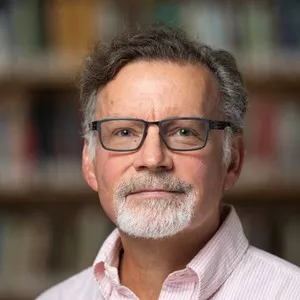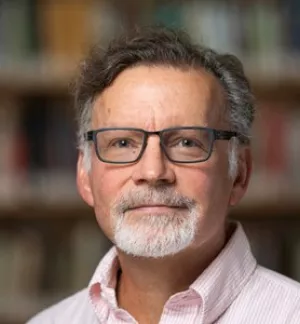
Cybersecurity

Inequality played a major role in Ivan Arreguín-Toft's life early on. This starts with his trilingual mother, who raised Ivan alone in San Francisco in the 1960s. "Especially because of her nature, she had a hard time finding a partner who was not disappointed after a while that she neither became submissive, nor gave herself to traditional gender roles," recalls Arreguín-Toft. He cites the supposed power imbalance between the sexes, which he observed in his youth, as a reason why he wanted to deal with the problem area of "power". "It became later and is still an intellectual and research-related obsession: What is power and how can we say who has more and who has less power in the run-up to a conflict of interest?" says Arreguín-Toft.
Today, he is a recognized researcher on asymmetric conflict theory and has recently become an associate at the Belfer Center for Science & International Affairs at Harvard Kennedy School. Previously, he was one of the directors of the Watson Institute for International and Public Affairs at Brown University.
Many sonorous names adorn his academic curriculum vitae. "While I was at the graduate school, I dealt with the question of how weaker actors win wars. The timing was appropriate, because the world waved from the vision of the Cold War, in which alliances of states faced each other in blocks, to a state in which the United States was primarily able to influence international events due to its unique position of power, explains Arreguín-Toft. The publication of an important journal article took place shortly before 9/11. In that article, he set out his core argument: inferior actors could drastically increase their chances of winning a war if their strategy led to a delay in the expected outcome — the prevention of a short and clear victory.
Earlier Against the Enemy Abroad
This is still what his research is based on today. However, before Arreguín-Toft embarked on a scientific career, he worked as an analyst for the US military. There he also met the second strong woman of his life, his current wife Monica. As luck would have it, both avoided each other for the first time at a Russian language course in Texas. In 1984, both were transferred together to Augsburg, one of two major US institutions for telecommunications and electronic reconnaissance in Germany. "The work was exciting, complicated, top secret. And unaware that the USSR would collapse within a few years due to internal upheavals, we felt honored to risk our lives in the Federal Republic of Germany — and to live among the Germans," he says.
Working as a "Traffic Analyst" has decisively influenced his thinking about "predictive policing" and thus also his intellectual examination of AI-based algorithms. In the 1980s, his focus was still on telecommunications signals, today on the "ocean full of often highly intimate data." But as an analyst in military service, it was about identifying enemy acts. "Today, it is private US companies that collect and store detailed data on profit generation — a far-reaching unregulated practice," Arreguín-Toft points out.
The “Dual-use" Problem of Big Data
Fundamentally, he had to adapt his once represented assumptions and findings on asymmetric conflict theory to cyberspace, because according to Arreguín-Toft, there is no longer just one or, as in the Cold War, two superpowers. Compared to Europe and the United States, for example, the Russian Federation is a weak player. However, their Internet Research Agency has developed novel techniques that have led to shifts to the right in democratic policy systems worldwide, says Arreguín-Toft. "Democracies such as France and the United States have become more authoritarian and intolerant. States such as Estonia and Ukraine have developed novel countermeasures as long-standing goals of Russian disinformation operations. But the United States remains virtually helpless."
In addition to targeted disinformation campaigns, it is well known that large-scale collection of data offers a gateway for misuse. Security experts then say that algorithms based on big data, for example, have a so-called dual use. They can be helpful for everyone, but just as useful for individuals. And according to Arreguín-Toft, we must not only pay attention to traditional enemies. Governments have the authority to request highly intimate and multi-factor data in the prosecution of criminals. Not to misunderstand me: In the hands of law enforcement agencies, Big-Data algorithms have the potential to find human traffickers, serial killers or dealer networks that transport drugs with fentanyl," says the Harvard scientist.
But if laws are oppressive and unfair, as is the case in the US states, which deprive women of the right to reproductive self-determination, this data could also lead to the arrest of health providers or the finding of those women who drive out of the country to carry out an abortion. The same algorithm that suggests that I like Japanese whiskey can be used to take action against my oppositional attitude towards a second Trump presidency if it comes to it.
Eckner, Constantin . “Background: Ivan Arreguín-Toft.” Der Tagesspiegel, September 23, 2022
The full text of this publication is available via Der Tagesspiegel.




